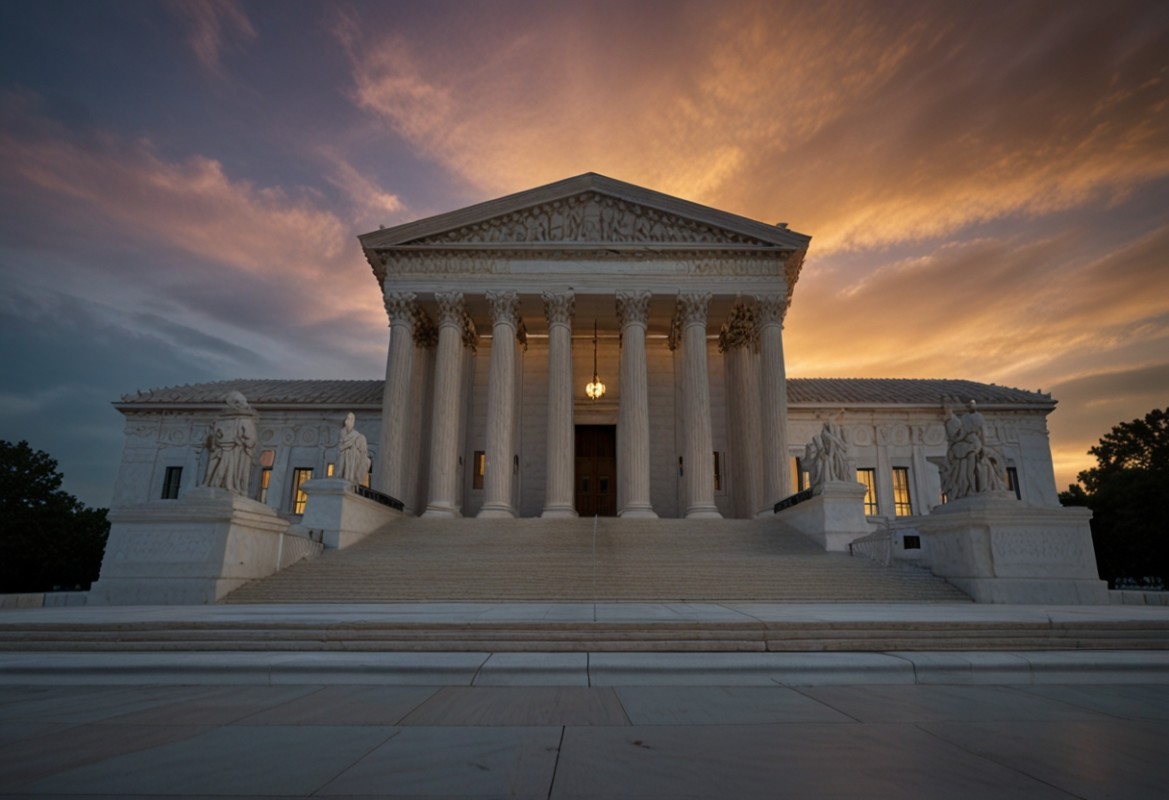
In a landmark decision on June 28, 2024, the United States Supreme Court, by a vote of 6-3, overturned the long-standing Chevron doctrine, which fundamentally reshapes the landscape of administrative law and judicial review. The case, Runner Bright Enterprises against Raimondosignals a significant shift in the balance of power between the judiciary and administrative bodies. This decision not only strengthens the independence of the judiciary, but also provides substantial benefits for the Bitcoin industry, which West Virginia v. EPA decision.
The case
The Chevron leather, located in Chevron USA, Inc. v. Natural Resources Defense Council, Inc.467 U.S. 837 (1984), required courts to leave interpretations of ambiguous statutes to agencies, so long as the interpretation was deemed reasonable. This two-step framework had become a cornerstone of administrative law, often tipping the balance in favor of agency authority over judicial oversight.
In Runner ClearThe petitioners challenged a National Marine Fisheries Service (NMFS) rule requiring Atlantic herring fishermen to pay the costs of onboard observers, arguing that the Magnuson-Stevens Act (MSA) did not authorize such a mandate. The lower courts had upheld the NMFS rule, applying Chevron respect to conclude that the agency’s interpretation was permissible.
The Supreme Court ruling
Chief Justice Roberts, writing for the majority, delivered a decisive opinion that Chevron respect. The Court ruled that the Administrative Procedure Act (APA) requires courts to exercise independent judgment when interpreting statutes, rejecting the idea that ambiguities in the law should hamper agency interpretation.
“Chevron goes against the APA’s order that “the reviewing court”—and not the agency whose actions it reviews—must “decide” and “interpret all relevant questions of law.” . . statutory provisions,’” Roberts wrote. “It requires a court to ignore and not follow the reading that the court would have arrived at if it had made its independent judgment. … Chevron cannot be reconciled with the APA….” Slip Op., at 21 (emphasis added).
The ruling emphasizes that statutory ambiguities do not automatically delegate interpretive authority to agencies. Instead, courts must use traditional tools of statutory interpretation to determine the best reading of a statute, ensuring that agencies do not exceed their granted authority.
Impact on Bitcoin and Bitcoin Mining
The implications of this ruling extend far beyond administrative law and into the heart of the Bitcoin mining industry. Like the Supreme Court’s decision in West Virginia v. EPAwhich caused Environmental Protection Agency exceedanceThis ruling reinforces the need for clear congressional authorization before agencies can impose significant regulatory burdens.
For the Bitcoin mining industry, this decision is a clear victory. Regulatory uncertainty has long been a thorn in the side of Bitcoin miners, who depend on predictable and stable access to power and other resources. By limiting agencies’ ability to unilaterally expand their regulatory reach, the Court has created a more favorable environment for Bitcoin mining activities.
Bitcoin miners are often at the mercy of changing regulations, which can have a dramatic impact on their operations. For example, strict environmental regulations aimed at power consumption could seriously limit the industry. With the Chevron If the doctrine is overturned, any future regulatory attempts to impose such burdens will require explicit and unambiguous congressional authorization, followed by detailed judicial review.
This decision also strengthens the doctrine of great demand, which states that major regulatory actions with large economic and political implications require clear authorization from Congress. This doctrine can be a powerful tool for Bitcoin miners and other industries to challenge regulatory overreach, ensuring that agencies cannot impose broad policies without clear legislative backing.
Additionally, recent developments have led the Biden administration to step up oversight of the US Bitcoin mining sector through a Energy Information Agency (EIA) emergency investigation, which portrayed electricity use by miners as a significant threat to the stability of the national grid. This move required detailed disclosures from miners and mirrored actions in countries such as Venezuela, signaling a worrying trend toward building a full register of mining activities. The industry responded unitedly against such excesses, resulting in a decisive victory against the federal government.
Insights from the NRA And Stonemason Fallen
The recent one NRA and Cantero cases further highlight the legal shift toward protecting industry autonomy from regulatory overreach. In both cases, the courts have demonstrated a willingness to scrutinize agency actions that appear to exceed their statutory authority. NRA case, dealing with banking regulations, and the Stonemason In this case, with its focus on state versus federal regulatory powers, the importance of clear legislative guidance is underscored. These cases have set a precedent that benefits the Bitcoin mining industry by highlighting the role of the judiciary in curbing unwarranted regulatory expansion, similar to the protections now bolstered by the Supreme Court’s rejection. Chevron respect.
Final thoughts
The decision of the Supreme Court to quash the judgment of the Court of Justice Chevron represents a monumental shift toward judicial independence and a recalibration of the administrative state. For the Bitcoin industry, this ruling is particularly significant, as it promises a more predictable and less burdensome regulatory environment.
As industries and legal experts grapple with the implications of this ruling, one thing is clear: the era of agency deference has been significantly shortened, marking a new chapter in the interpretation and application of federal law. This ruling underscores the importance of clear legislative mandates and could lead Congress to take a more active role in defining the scope of the agency’s powers in the future.
For Bitcoin miners, this decision is a beacon of hope, heralding a future where regulatory overreach can be challenged more effectively, fostering a more stable and supportive environment for the industry’s growth and sustainability. With the judiciary reclaiming its role as the ultimate arbiter of the law, the Bitcoin mining community and Americans as a whole can now look forward to a more balanced and equitable regulatory landscape.
This is a guest post by Colin Crossman. The opinions expressed are entirely their own and do not necessarily reflect those of BTC Inc or Bitcoin Magazine.
